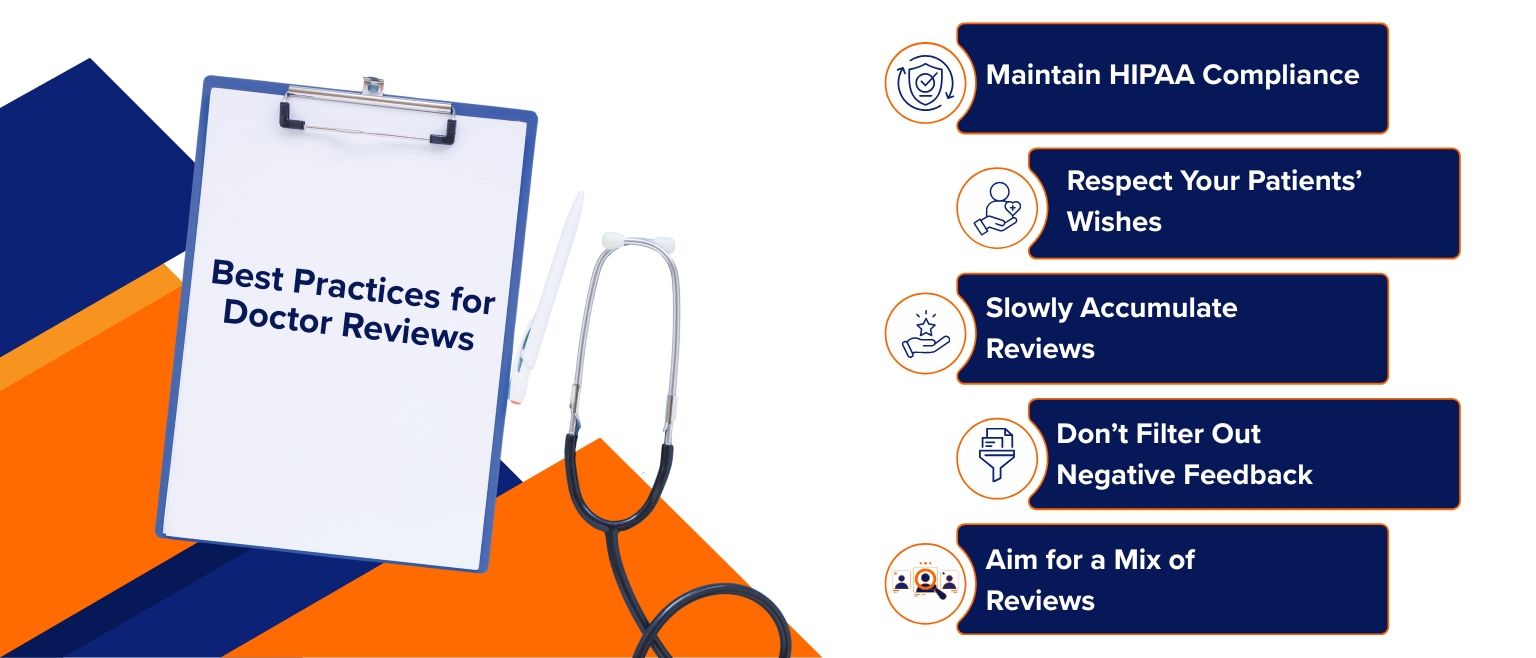
Choosing a new doctor can be an overwhelming experience for many patients. When it comes to health, people want to feel confident in their decision—and that often means doing more research than ever before. This is why online reviews for doctors play such a vital role in modern healthcare reputation management.
Instead of relying solely on word of mouth, most patients now turn to online resources to guide their choices. They scan practice websites, browse review platforms, and read through detailed feedback from other patients to better understand the care and experience they can expect. In fact, more than 45% of patients are now actively sharing their experiences online—an increase that reflects the growing trust in digital word-of-mouth.
For healthcare providers, this shift is both a challenge and an opportunity. A strong base of high-quality reviews can help improve search visibility, attract more patients, and build long-term trust within your local community. Before you can create a plan to improve your review performance, it’s important to understand where you currently stand. Request your free online review scorecard to get a personalized analysis of your average rating, review volume, and engagement metrics.
In this guide, we’ll explore why online reviews are so important for doctors, the best places to collect them, how to ask for and respond to patient feedback, and how to turn those reviews into an effective marketing tool for your practice.
Why Does Healthcare Reputation Management Matter for Doctors?

Reviews as Social Proof
Online reviews function as powerful social proof. When potential patients see a stream of positive feedback from others who had a good experience, it validates your expertise and care quality. On the flip side, limited or negative reviews can deter people even if you offer excellent service. A strong base of reviews communicates credibility and trust.
Insights for Patient Decision-Making
Today’s patients go beyond clinic hours and services—they want to know:
- How well does the doctor communicate?
- Is the front desk friendly?
- Is scheduling easy?
- Are facilities clean and safe?
Your reviews provide answers to these questions from a patient perspective, helping others feel confident about choosing your practice.
SEO Benefits of Online Reviews for Doctors

Search engines reward practices that have frequent, high-quality reviews. Positive review signals enhance your visibility in local search results and increase your chances of appearing in Google’s “Local Pack.” Simply put, more reviews mean more eyes on your practice.
Top Places Where Patients Leave Doctor Reviews
General Review Platforms
- Google Business Profile: The most influential platform for local visibility.
- Facebook: Social sharing and visibility among community members.
- Yelp: Popular for local searches, especially in urban areas.
Healthcare-Specific Review Sites
- Healthgrades
- WebMD
- Zocdoc
- Vitals
These platforms offer condition-specific searches and booking functionality, which can boost visibility for specialized providers.
First-Party Reviews on Your Website
Collecting and displaying reviews on your own website builds trust for visitors already researching you. Consider embedding testimonials or average star ratings on key pages like service descriptions or the homepage. Start by requesting your scorecard to see how your review performance stacks up—and where your website content can improve.
Best Practices for Requesting and Managing Reviews
Ask At the End of a Successful Treatment Plan
Timing matters. Ask for feedback when treatment is complete and your patient is satisfied. This ensures their experience is fresh and positive.
Ask Long-Term Satisfied Patients
Loyal patients are often happy to share their stories. A polite message or quick follow-up thanking them for their trust can open the door to a thoughtful review.
Leverage Automation to Remind Patients
Busy patients may forget—even with the best intentions. Use automated email or text reminders a few days after treatment to nudge them. Tools that help you track engagement and follow up at the right moment can drastically improve your review volume.
Best Practices for Doctor Reviews

Maintain HIPAA Compliance
Never reveal patient-specific details in responses—even if the patient mentions them. Always keep your language general and respectful of privacy.
Respect Your Patients’ Wishes
If someone prefers not to leave a review, honor that. Pushing for feedback can erode trust and damage your reputation.
Slowly Accumulate Reviews
Avoid a sudden spike in reviews, which may look suspicious to platforms like Google. Consistent, steady growth over time is more authentic and effective.
Don’t Filter Out Negative Feedback
Negative reviews are inevitable. Instead of hiding them, show your professionalism by responding with empathy and a willingness to improve. This builds credibility.
Aim for a Mix of Reviews
Diversify where your reviews appear—Google, healthcare-specific platforms, and your own website. This builds a holistic, trustworthy presence for potential patients.
How to Reply to Doctor Reviews
Replying to Positive Feedback
Acknowledge and thank the reviewer. Keep it short and non-specific to maintain HIPAA compliance.
Example:
“Thank you for your kind words. We appreciate sharing your feedback and we are just a phone call away if there is anything you need.”
Replying to Negative Feedback
Don’t get defensive. Express appreciation, and offer a way to follow up privately to address concerns.
Example:
“Thank you for your feedback. Due to privacy regulations, we can’t discuss details here. Please contact our office at [phone number] so we can assist you directly.”
Using Reviews as a Marketing Tool for Your Practice
Obtain Proper Consent Before Requesting or Using Reviews
Before leveraging any patient reviews for marketing purposes—whether on your website, social media, or printed materials—ensure you have obtained proper opt-in and written consent. Patients must be fully aware that their feedback may be used publicly. This is especially important when reaching out to patients for reviews or showcasing testimonials. Including a consent clause in your registration or intake forms is a great way to ensure compliance from the start.
Embedding Ratings on Your Website
Showcase your average star rating and review count directly on your homepage or service pages. This gives potential patients a quick summary of your reputation.
Highlighting Reviews by Service Type
Organize and display reviews by procedure or specialty. This helps reassure visitors that you have a strong track record in exactly what they’re looking for.
Building Local Trust Through Testimonials
Use compelling quotes from patients (with consent) in newsletters, brochures, and ads. Local voices resonate with local audiences and reinforce credibility.
Get Your Personalized Review Scorecard
Before you and your team take action to improve your online reputation, it helps to know where you stand. Fill out the form below to receive a custom review performance scorecard in your inbox within moments. This report includes:
- Your average star rating vs. competitors
- Total review volume and trends
- Response rates and engagement insights
Use the scorecard to identify strengths and weaknesses—and take the guesswork out of your reputation strategy.
Start Leveraging Reviews to Build Trust and Grow Your Practice
Doctor reviews are no longer optional—they’re foundational. By collecting patient feedback, replying thoughtfully, and marketing your best testimonials, you’ll build stronger trust and more meaningful relationships with patients.
The path to a more trusted, more visible practice starts with a plan—and it starts today.
Request your review performance scorecard now and take the first step toward mastering your online reputation.




